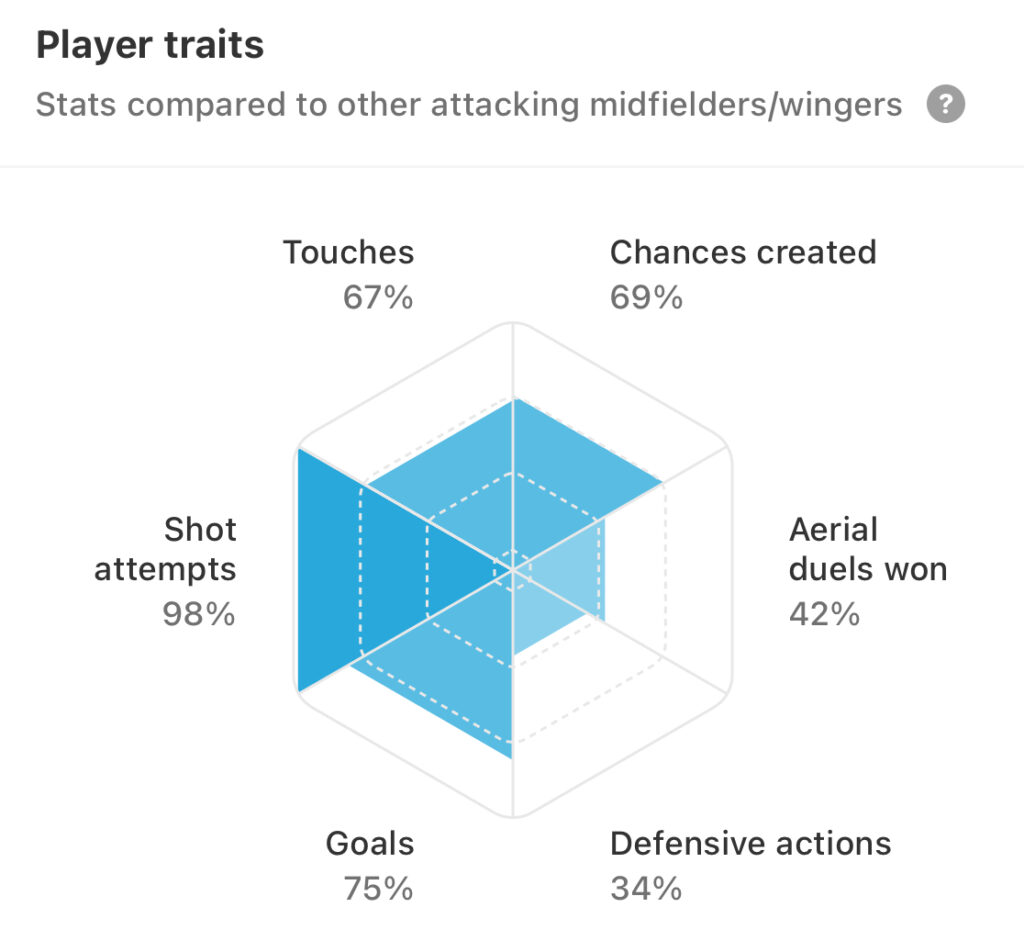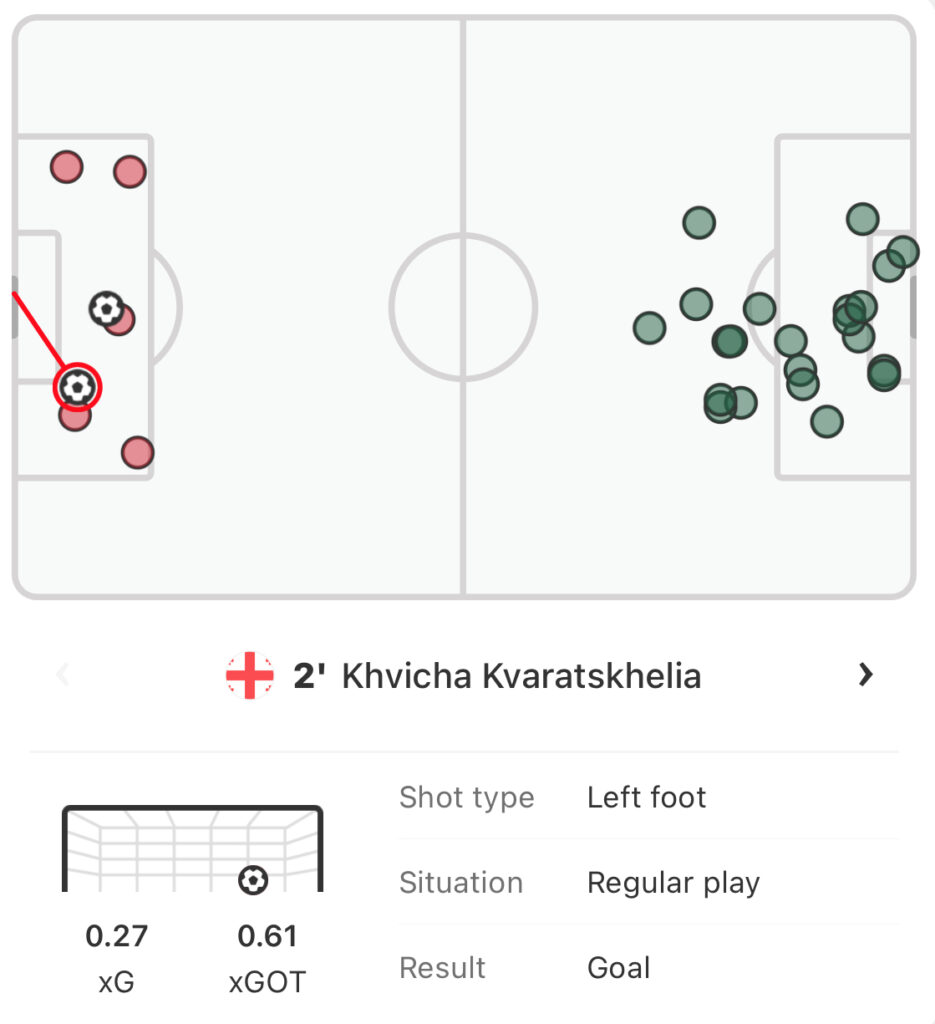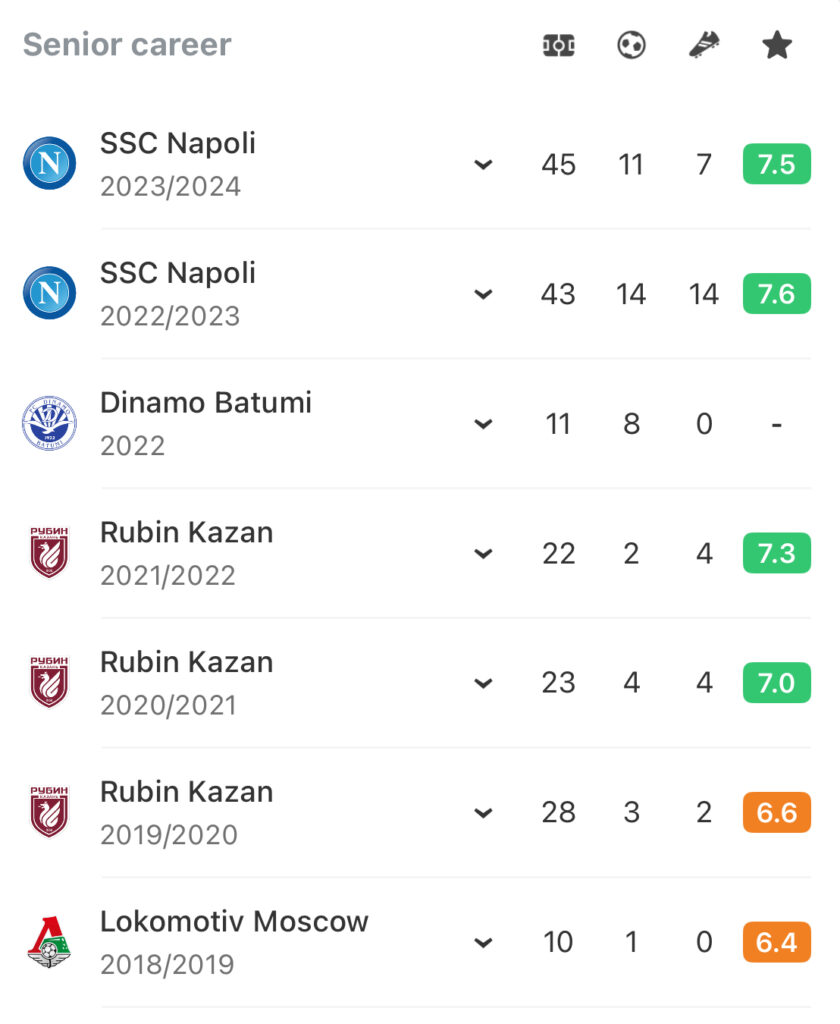Khvicha Kvaratskhelia: The Georgian star who has worked his whole life for this moment
Gela Davitadze still remembers the first time he saw Khvicha Kvaratskhelia touch the ball.
By Ben Bocsák
Back in March 2022, Kvaratskhelia arrived at Dinamo Batumi, in his native Georgia, after suspending his contract with Rubin Kazan due to the Russian invasion of Ukraine.
He was already highly regarded back home, but even Davitadze did not expect the young winger to impress him as much as he did in his first training session at the club.

“He was amazing.” The Dinamo Batumi analysis coach recalls to FotMob. “In the first training session the first time he touched the ball I remember thinking ‘oh my god I have never seen a player of this level.’”
Kvaratskhelia only spent a few months at Dinamo Batumi before being picked up by Napoli. However, in those six months he left an indelible impression on Davitadze.
“He did an amazing job at Dinamo Batumi and took us to the next level. His time was short, but he did his job very good.
“Every home game was full of supporters and our opponent teams’ supporters supported him. Everyone wanted to see him play. Wherever we went we fans came to watch him play.”
Having bamboozled Portugal’s defence at Euro 2024, it’s easy to see why fans would flock to watch him play. Yet there was a time when not everyone was convinced of his talent. Dinamo Tbilisi’s former academy director Andres Carrasco remembers having to convince the club’s scouts to bring Kvaratskhelia to the club.

“He was ten years old when he came to the club [Dinamo Tbilisi],” Carrasco recalls.
“I remember that day when we were watching him play. I remember some coaches were having doubts about him. There were some who believed that he won’t progress. But I saw something in him and so we signed him eventually.”
Carrasco came from La Masia’s renowned academy, and he had witnessed Lionel Messi’s development first hand, he knew his intuition would be proved right.
The scrawny Kvaratskhelia would torment his opponents time and time again at academy level and quickly progressed through the ranks at Dinamo Tbilisi.
“He came through our whole system from the very beginning. The first time I saw him, he looked quite similar to how he does now. That’s the great thing about these types of players. It was the same with Messi.
“Khvicha was always very skinny and looked like he could disassemble at any moment, but he made it very difficult for the defenders He was breaking defenders like now and doing the same things. When he was competing against the same age and one year older, and he was beating players all the time, he was brave in one vs one and he had that smartness to find the pass no one could.”
Another factor that helped Kvaratskhelia’s early development was the influence of his father, according to Carrasco.
Kvaratkhelia’s father, Badri, was a professional footballer who played close to a decade in Azerbaijan and even went onto represent the country at senior international level.
“Our environment was crucial for him, but also his father is football-mad,” Carrasco says.
“When a player like this comes into your environment and a father who knows what he wants for his son, it helps you a lot. I think that’s the best, and our facilities were able to give him the best chance to develop and grow.”
“He had some difficulties; it wasn’t always so easy for him. I think the good thing that he had was that his family was a football family and they supported him and they always found a way to instil his personality on him and make him the brave guy he is today.”
In the end, Kvaratskhelia would go onto make his name in Russia before returning to Georgia to play for Dinamo Tbilisi’s rivals in Batumi.
He was only 21 years old at the time, but Davitadze remembers a player who was years ahead of his peers when it came to his maturity on and off the pitch.

“He loved training everyday,” Davitadze says. “He liked to do additional training. He would train during the day, go home rest and then come back to train again in the evening.
“The first time he came back I asked him ‘what are you doing here?’ and he said: ‘I’m here to train.’ So, I went with him to watch, he took the balls and started to dribble, and then shoot. He was always working very hard.
“He loved to put in hard-work, and he also loved doing rondos. In the rondo he was amazing, his skills, his first touch, it was brilliant. He was always trying to win, even in training. He was always very determined.”
Off the pitch, Davitadze remembers spending hours with Kvaratskhelia studying the opposition before every game.
“Before the games he would always watch the opposition defenders who would play against him, and he studied the defenders’ weak side and stuff like this. He would always ask me questions about the opponents’ weaknesses.”
When it came to beating opponents on the pitch that knowledge and Kvaratskhelia’s years of practise made him a formidable opponent.
“Before he receives the ball, he has already made a decision on how to continue to play, and he not only has one plan, but he also has different solutions to beat defenders. I think in modern football this attribute is a big advantage.”
Kvaratskhelia has already made history with Georgia at Euro 2024. He will take on Spain in the round of 16 on Sunday hoping to cause problems to a defence that is yet to concede a goal at the tournament. Davitadze hopes Kvaratskhelia’s mercurial quality will spring up even more surprises along the way.
“He’s a very important player for Georgia and I hope he will write even more history to make Georgian people very happy.”
Still only 23 years old, he is already regarded by many as Georgia’s best ever player. Davitadze could not agree more.
“In the history of Georgia, we have had many talented Georgian players but now I can say he is the best player that we have ever had in our football history. He did everything for this.”
(Cover image from IMAGO)
You can follow every game from Euro 2024 live with FotMob — featuring deep stats coverage, xG, and player ratings. Download the free app here.